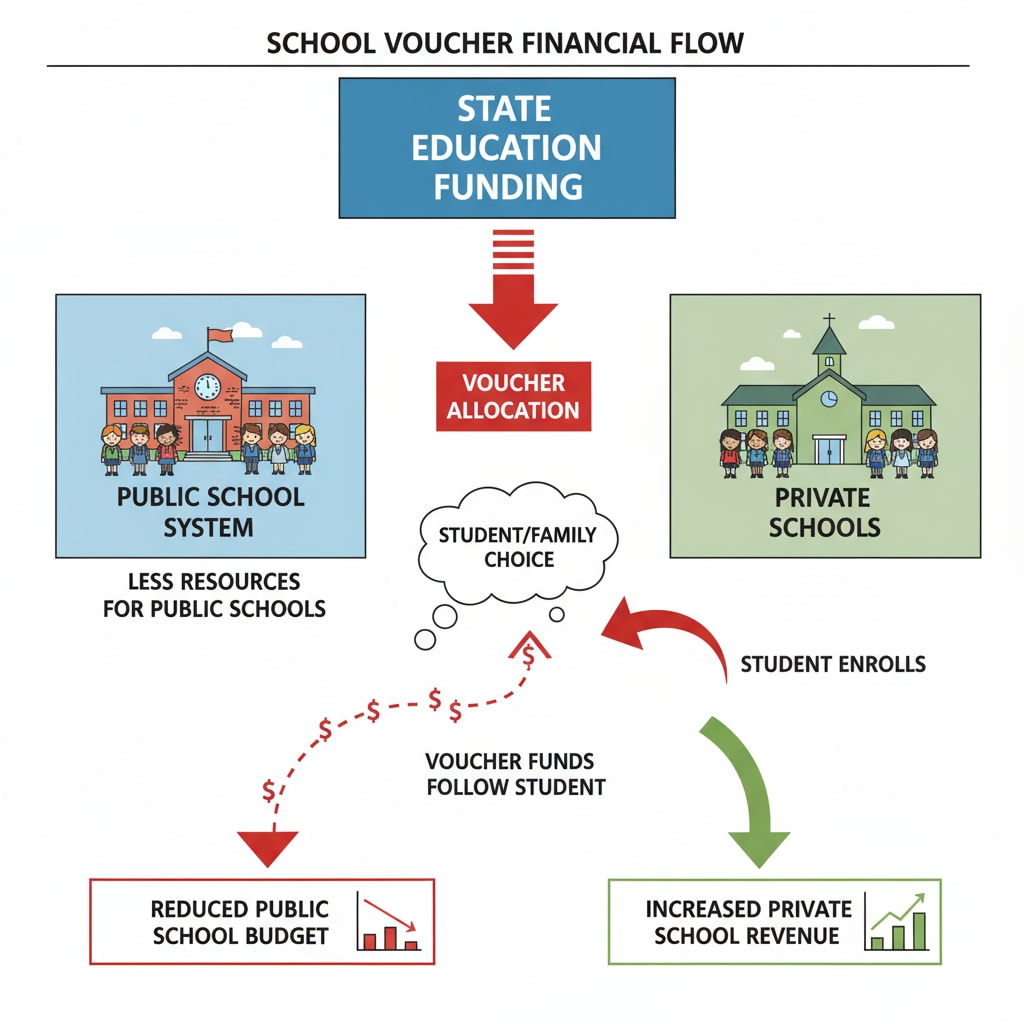The concept of school vouchers and their impact on public school funding has been a hotly debated topic in the realm of education. School vouchers are essentially certificates or vouchers provided by the government to parents, which they can use to pay for their children’s education at schools of their choice, including private schools. This system has far-reaching implications for public school funding.

The Proponents’ View: A Boost for Educational Choice and Innovation
Supporters of school vouchers argue that this system can bring several benefits to the education landscape. Firstly, it enhances educational choice. Parents are no longer restricted to sending their children to neighborhood public schools. They can use the vouchers to access a wider range of educational institutions, which may better suit their children’s needs. For example, a child with special educational needs might find a more specialized private school through the voucher system. As a result, this increased competition among schools can drive innovation. According to EdChoice, schools will strive to improve their teaching methods, curriculum, and facilities to attract students, ultimately benefiting the students. In terms of funding, some believe that it can lead to more efficient use of resources as schools have to be more cost-effective to remain competitive.

The Opponents’ Concerns: Threats to Public School Stability
On the other hand, critics of school vouchers raise serious concerns about the impact on public schools. One of the main issues is the potential drain of funds. When students transfer from public schools to private schools using vouchers, the associated funding follows them. This can lead to a reduction in the budget available for public schools. As a result, public schools may face difficulties in maintaining quality education, such as hiring qualified teachers, updating teaching materials, and improving facilities. The National Education Association has long opposed school vouchers, stating that it undermines the public education system. Moreover, there are concerns about fairness, as students from more affluent families may be better able to supplement voucher funds with their own resources, further widening the educational gap.
Finding a balance between the potential benefits of school vouchers and protecting the stability and quality of public schools is crucial. One possible solution could be to implement strict regulations on voucher programs. For example, ensuring that a certain percentage of voucher-funded students are from disadvantaged backgrounds can help promote equity. Additionally, providing additional support to public schools to offset the potential loss of funds can help maintain the overall quality of education. In conclusion, the debate over school vouchers and their impact on public school funding is complex, and careful consideration of all aspects is needed to make informed decisions for the betterment of education.
Readability guidance: This article presents different viewpoints clearly. The use of short paragraphs and lists helps summarize key points. Transition words are used to make the flow smooth. Each section provides a focused discussion on different aspects of the topic.


